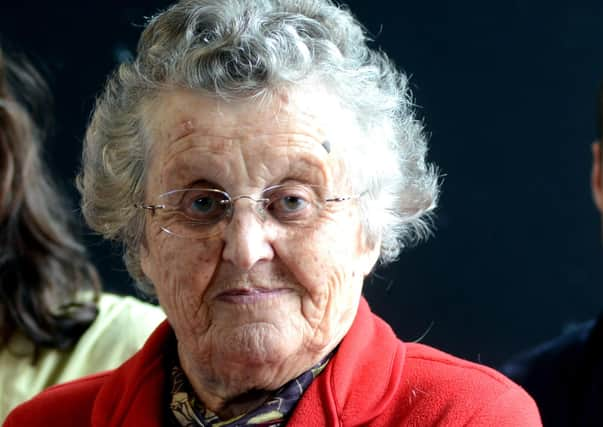Obituary: Sue Pearson, Holocaust survivor


Sue Pearson, who has died aged 92, escaped the Holocaust when she was given sanctuary in Sheffield in the months before the Second World War. At 11 years old, she was among some 10,000 children plucked from occupied Europe by the organised international rescue mission known as Kindertransport.
She never saw her parents again but used her experience to educate children who followed, becoming head of Sheffield’s Grace Owen nursery school and later training nursery teachers at Sheffield Hallam University, as well as becoming active in Holocaust memorial events. She was awarded an MBE for services to education in 1985 and an honorary doctorate by the university in 2000.
Advertisement
Hide AdAdvertisement
Hide AdBorn Susanne Ehrmann in Moravská Ostrava, Czechoslovakia, she and her parents moved to Prague when she was four. Her voyage from there had been arranged by the humanitarian Nicholas Winton, after the Nazi invasion. He had compiled a list of children who would face almost certain death under the Nazis and managed to get 669 of them to Britain. Other individuals and charities helped thousands more during the same mass evacuation.
The Ehrmann family believed Susanne’s move to England would be temporary, she recalled nearly 80 years later, to The Yorkshire Post. “All our parents believed the whole problem would come to an end and they join us,” she said.
“Before Czechoslovakia was invaded, my mother had taken in refugees from Germany and we heard talk about what it was like to be a Jew in Germany. It was incredibly frightening.”
Fostered by a Sheffield family and speaking almost no English, she was sent to Woodseats School, where she remained until she was 14 and went to work in a drawing office. Two years later, she began training as a children’s nurse in London, but returned to Sheffield after the war as a nursery nurse.
Advertisement
Hide AdAdvertisement
Hide AdIt was at that time, as eyewitness accounts of the extent of the Holocaust began to appear, that she had to confront the likelihood that her parents were among the six million victims. She eventually received a letter from her father that he had left with an acquaintance.
“They were taken to Poland in 1941, my father left a letter for me with somebody he worked with, a non-Jewish person. I received it after the war and I realised it was unlikely they had survived,” she said. “My father had some English and was a very intelligent man. They had an address for me in Sheffield. He would have done his upmost to be in touch.
“I have never found out the details of what happened despite trying but they were in the Lodz ghetto in Poland. As the stories broke through about the Holocaust, I knew it was unlikely they had survived.
“If I had anybody to have gone back to, I would have gone back but there didn’t seem to be anybody. All I had was this letter.”
Advertisement
Hide AdAdvertisement
Hide AdA year after the war’s end, she married Sheffielder Harry Pearson, who also became a teacher. They were married for 70 years until his death in 2016 and had three daughters, seven grandchildren and eight great-grandchildren.
Comment Guidelines
National World encourages reader discussion on our stories. User feedback, insights and back-and-forth exchanges add a rich layer of context to reporting. Please review our Community Guidelines before commenting.